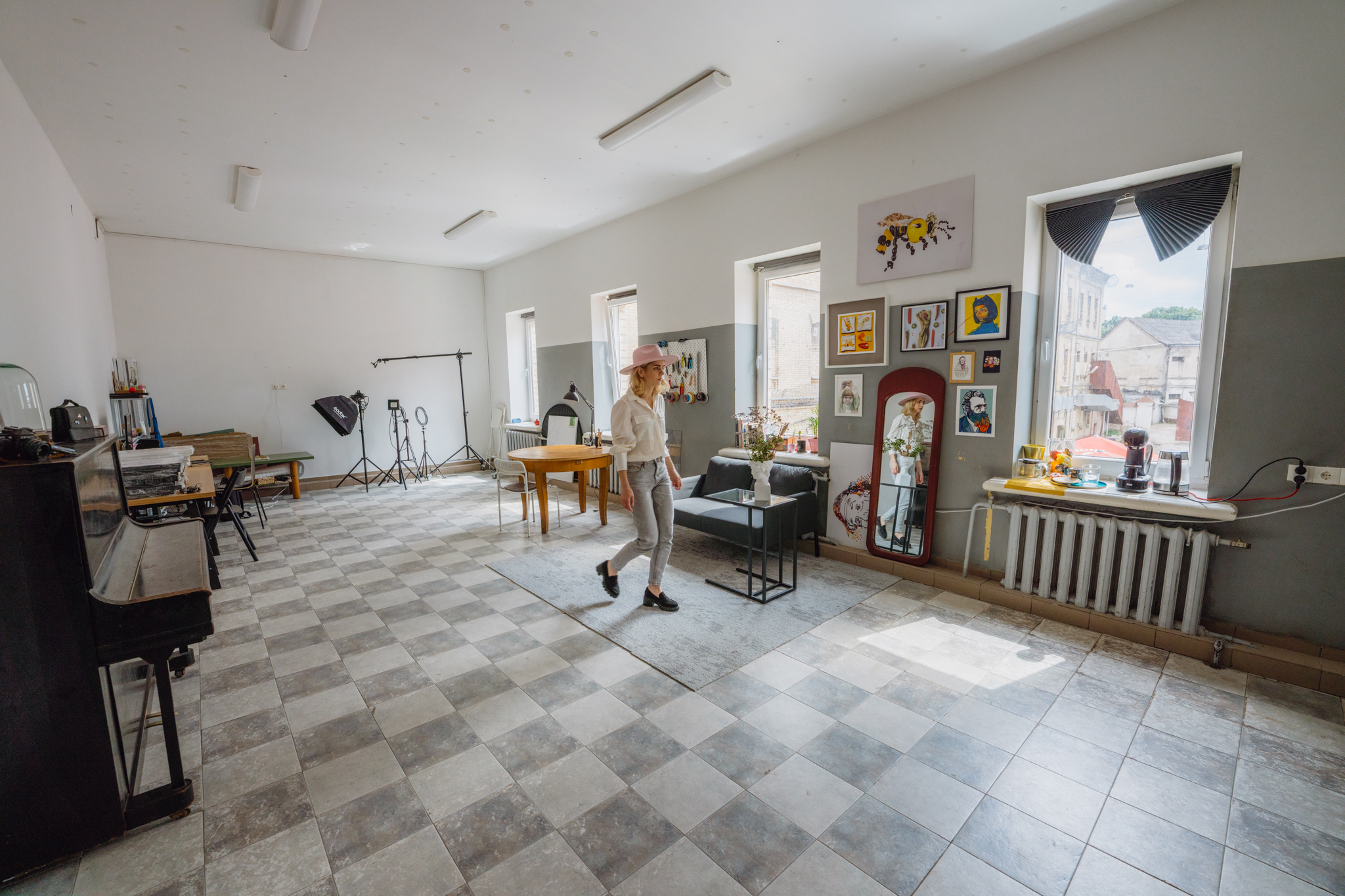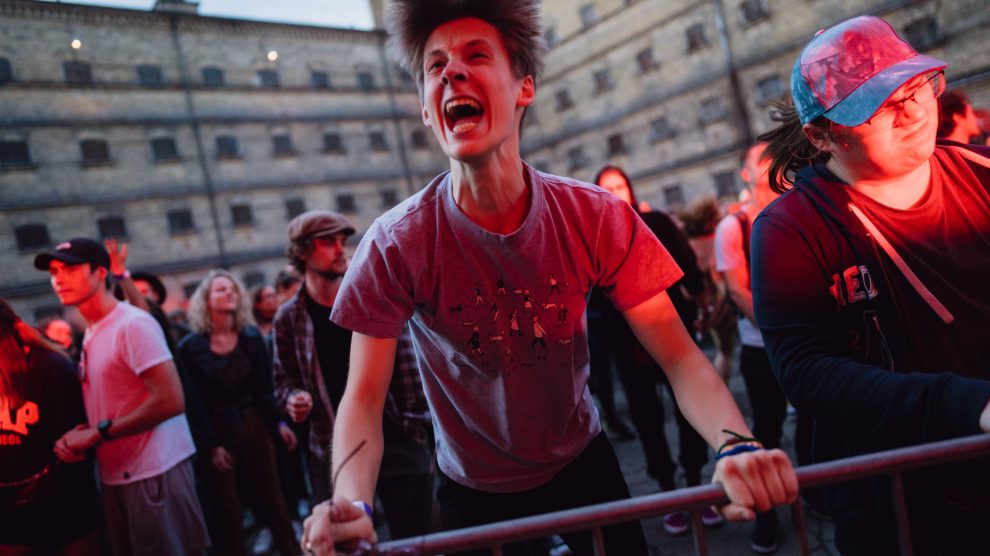In the Lithuanian capital Vilnius, a former prison has been turned into a cultural hub.
Lukiškės prison, one of the most notorious buildings in Vilnius, the capital of Lithuania, has reopened as a cultural cluster after being closed as a jail in 2019.
- Don’t mix politics with aviation safety, says IATA after Belarus flight ban
- Poles and Belarusians divided by a common history
- In Bucharest, Covid-19 vaccines come served with meatballs
The century-old prison, which attained global recognition after featuring as a shooting location for Netflix’s enormously popular series Stranger Things, has now been repurposed to host cultural activities, concerts, festivals, and exclusive tours for at least two years.
The new entertainment hub, titled Lukiškės Prison 2.0, was opened by the band Solo Ansamblis, who performed to an audience of over 1,000 spectators for the first time in nine months due to persisting lockdowns.
Since the Covid-19 pandemic suspended the majority of cultural and entertainment events, this summer 250 artists have been given the opportunity to resume their creative pursuits with a spectrum of cultural experiences.
Artistic residents have set up workshops, studies, and creative spaces within former prison.
One of the artists based in Lukiškės is Jolita Vaitkutė, who has established a studio in the prison’s former canteen. According to the artist, engaging in creative activities among so many other artists feels special despite the building’s grim past.
“Artists are great accelerators when it comes to converting the spaces into something unprecedented,” she says. “The time when Lukiškės was a prison are already long gone because we, the artistic community, gave a new meaning to the former spaces of imprisonment.”

8 Days a Week
Martynas Butkevičius, partner at 8 Days a Week, a Lithuanian music agency which is implementing the Lukiškės Prison 2.0 project, believes that culture has the power to reinforce and transform Vilnius.
“So we have to make some kind of a jolt to create new emotional ties with the former prison,” she says.
“There is a lot Lukiškės has to offer to the city and vice versa, therefore, from now on we will work to create the best version of the prison instead of looking back to its past.”
According to Butkevičius, Lukiškės will become the facilitator of music, modern art, design, and culture.
“Hundreds of artists have responded to the open invitation and have established their artist residences, studios, and workshops in Lukiškės to mutually create, co-operate, and instill life into the former prison. Since all of us are tired from the pandemic and its consequences, now is the best time for this conversion,” adds Butkevičius.
Lukiškės is open from noon till midnight every day and also offers two unique tours.
The daytime tour introduces the visitors to the prison’s history, architecture, and the daily life of prisoners, while the nighttime tour, illuminated with flashlights, has been created to offer an adrenaline boost for the most courageous of visitors.
Transformation through art
Lukiškės prison used to be one of the least attractive spaces of the Lithuanian capital.
Built in 1902, when Lithuania was under the rule of Russian tsars. In 1905 St Nicholas Orthodox Church was added to the complex, which also housed administrative offices and apartments of prison officers.
For more than 100 years, the complex served the same purpose. Lukiškės was used by the tsars, the German administration during World War I, the Polish government of Vilnius, the Lithuanian government of 1939-40, the Soviets, the Germans again during World War II, then again by the Soviets and finally by the Lithuanian government after the restoration of independence in 1990.
Several years ago, the Lithuanian government took the decision to close the prison and relocate prisoners and staff to other confinement facilities.
The relocation was completed in the summer of 2019.
Now, this once grisly space is being transformed through art.
Photos: Mantas Repecka (courtesy Go Vilnius).
Unlike many news and information platforms, Emerging Europe is free to read, and always will be. There is no paywall here. We are independent, not affiliated with nor representing any political party or business organisation. We want the very best for emerging Europe, nothing more, nothing less. Your support will help us continue to spread the word about this amazing region.
You can contribute here. Thank you.




Add Comment